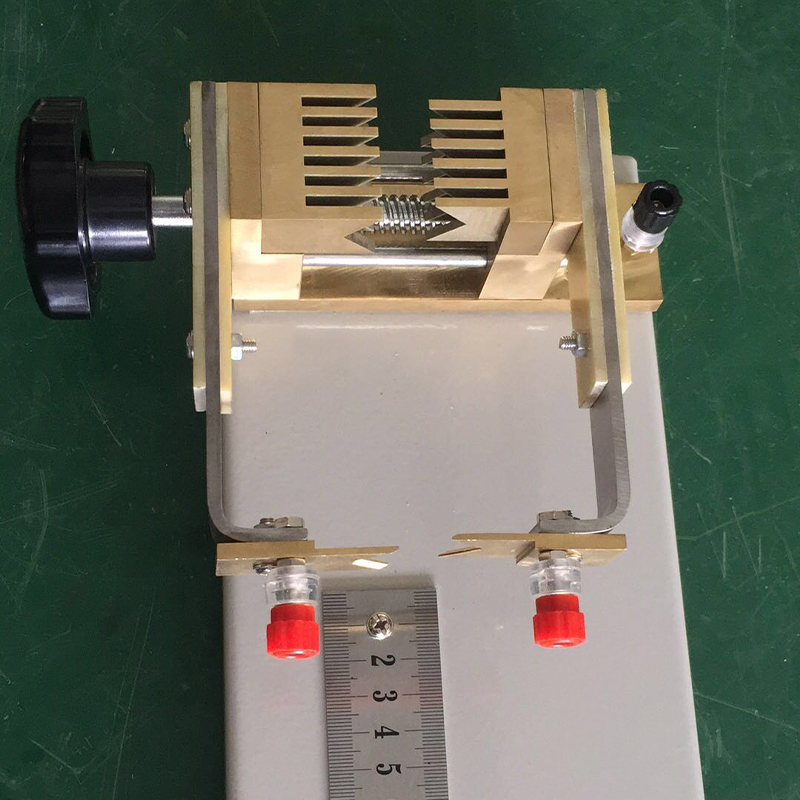high insulation resistance tester
The Importance of High Insulation Resistance Testers in Electrical Safety
In the world of electrical engineering, the significance of ensuring safety and reliability cannot be overstated. One crucial aspect of this safety is insulation resistance testing, which helps in identifying potential failures in electrical systems before they lead to hazardous situations. High insulation resistance testers are specialized devices that play a vital role in this process, delivering accurate readings that help maintain the integrity of electrical installations.
Insulation resistance testing is primarily concerned with the insulation materials surrounding conductors in electrical systems. Over time, these materials can degrade due to environmental factors, mechanical wear, or thermal stress, which can lead to shorts, ground faults, or electrical fires. High insulation resistance testers provide a means to assess the condition of insulation by measuring the resistance between the conductive parts of an electrical system and the ground. A high resistance reading typically indicates good insulation, while a low reading suggests deterioration that warrants further investigation.
One of the key advantages of using high insulation resistance testers is their ability to simulate real-world electrical conditions. These testers use high-voltage DC supplies to apply an elevated test voltage to the system, allowing for a simulation of the operational stresses that the insulation will face during its lifetime. By conducting tests under standardized conditions, engineers and technicians can gather reliable data, helping them to make informed decisions regarding maintenance, repairs, or replacements.
high insulation resistance tester

High insulation resistance testers are available in various models, equipped with different voltages, ranging from 250V to 5000V. The choice of voltage is significant because it directly impacts the sensitivity and operational range of the tester. For example, when inspecting equipment like generators or motors, a higher test voltage might be necessary to accurately evaluate the insulation, whereas lower voltages may suffice for less critical applications. Thus, choosing the right tester based on the specific requirements of the job is essential for optimizing safety.
In addition to their accuracy and versatility, high insulation resistance testers are designed with user safety in mind. Modern testers often incorporate features such as automatic discharge mechanisms, allowing users to safely handle the equipment without the risk of electric shock. Many models also include data logging capabilities, enabling technicians to store readings and analyze trends over time. This data can be invaluable for preventive maintenance strategies, helping organizations to extend the life of their electrical assets.
Moreover, regular insulation testing with high insulation resistance testers is not just a regulatory requirement in many industries; it is also a best practice for ensuring compliance with safety standards. Adhering to these protocols minimizes the risk of unexpected system failures, which can lead to costly downtime, and enhances overall operational efficiency.
In conclusion, high insulation resistance testers are indispensable tools in the field of electrical safety. Their ability to provide accurate measurements of insulation integrity is vital for preventing accidents and ensuring equipment reliability. By investing in high-quality insulation resistance testers and committing to regular testing protocols, organizations can significantly bolster their safety measures and protect both their personnel and assets in a potentially hazardous environment.
-
Why the Conductor Resistance Constant Temperature Measurement Machine Redefines Precision
NewsJun.20,2025
-
Reliable Testing Starts Here: Why the High Insulation Resistance Measuring Instrument Is a Must-Have
NewsJun.20,2025
-
Flexible Cable Flexing Test Equipment: The Precision Standard for Cable Durability and Performance Testing
NewsJun.20,2025
-
Digital Measurement Projector: Precision Visualization for Modern Manufacturing
NewsJun.20,2025
-
Computer Control Electronic Tensile Tester: Precision and Power for the Modern Metal Industry
NewsJun.20,2025
-
Cable Spark Tester: Your Ultimate Insulation Assurance for Wire and Cable Testing
NewsJun.20,2025
 Copyright © 2025 Hebei Fangyuan Instrument & Equipment Co.,Ltd. All Rights Reserved. Sitemap | Privacy Policy
Copyright © 2025 Hebei Fangyuan Instrument & Equipment Co.,Ltd. All Rights Reserved. Sitemap | Privacy Policy
